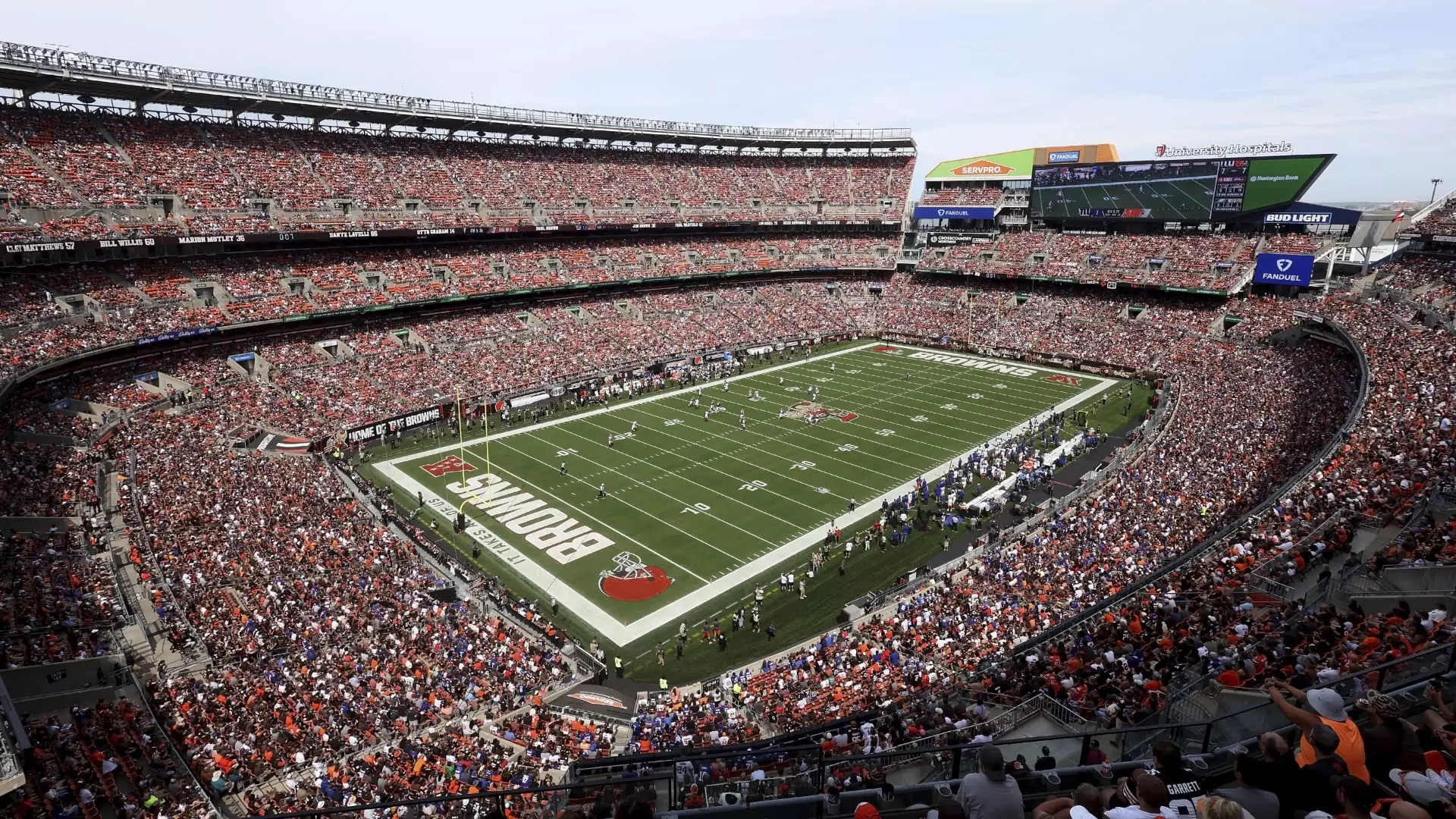The Cleveland Browns, a franchise steeped in history and pivotal to the identity of the city, are embarking on a significant transformation that has sent shockwaves through their fan base. With the announcement of plans to leave their current open-air stadium on the shores of Lake Erie, the team is poised to make a move to a state-of-the-art domed facility in Brook Park, Ohio. This decision, communicated by Mayor Justin Bibb and confirmed by the Haslam family, raises questions not only about the future of the team but also about the implications for the city of Cleveland and its community.
In a public statement that focused heavily on economic rationale, the Haslams explained that a domed stadium is essential for maximizing the team’s revenue potential. They emphasized the importance of year-round activities and highlighted the necessity of events beyond football that would contribute to the venue’s economic viability. Recent examples from the NFL showcase this trend, with concert events yielding substantial revenue, underscoring the changing dynamics of sports venues. However, this move is also perceived as prioritizing profit over place, as Mayor Bibb pointed out, stressing that the decision could lead to a significant economic downturn for the city—estimated at $30 million per year due to lost spending and local engagement.
Community Reaction: A Deeply Divided Response
The reaction from the Cleveland community encapsulates a wide range of emotions. Loyal fans of the Browns have expressed a feeling of betrayal, fearing that the decision symbolizes a departure from Cleveland’s cultural fabric. This sentiment is echoed by Mayor Bibb’s remarks, which criticized the Haslams for not taking the opportunity to invest in the already existing infrastructure. There is a palpable disappointment in the air, with many longtime supporters viewing the move as a lost chance to revitalize the current stadium, which premiered in 1999. For them, the Browns’ legacy is intertwined with the city, and the loss of their home at Lake Erie feels like a fracture in a shared history.
While the Haslams promise a private investment exceeding $2 billion for the new stadium, concerns persist about long-term financial implications, particularly regarding public investments used to bolster this development. The release from the Haslam family asserting that taxpayer dollars would not be required seems dubious in light of the public’s historically significant investment in sports infrastructure. The potential for bond debt to be serviced through revenues generated from the new facility offers a misleading sense of security—issues arising in financial forecasting could force the city to navigate unforeseen fiscal challenges.
Despite the finality of the Browns’ decision, Mayor Bibb expressed a willingness to embrace discussions should Brook Park not fulfill expectations. The tone here suggests a narrative of reconciliation, hinting at potential routes for collaboration that may still emerge in the wake of this contentious decision. The city has previously engaged in negotiations regarding the renovation of the existing stadium, and it remains to be seen whether these dialogues will take on new life in light of the relocation. What’s paramount is the understanding that the team’s departure doesn’t just affect fans and players; it alters the economic landscape—a change that could ripple through the local economy for years to come.
The announcement of the Cleveland Browns’ move to Brook Park encapsulates a complicated tapestry of economic pragmatism, community attachment, and sports loyalty. As the team explores new horizons, the city of Cleveland must grapple with the loss, face the uncertainties of its future economic landscape, and potentially redefine the relationship between a beloved franchise and its historic home. The ramifications of this decision will undoubtedly resonate, inviting public discourse and engagement that extends far beyond the football field. While the Browns may be leaving Lake Erie, the conversation surrounding their departure is just beginning.


Leave a Reply